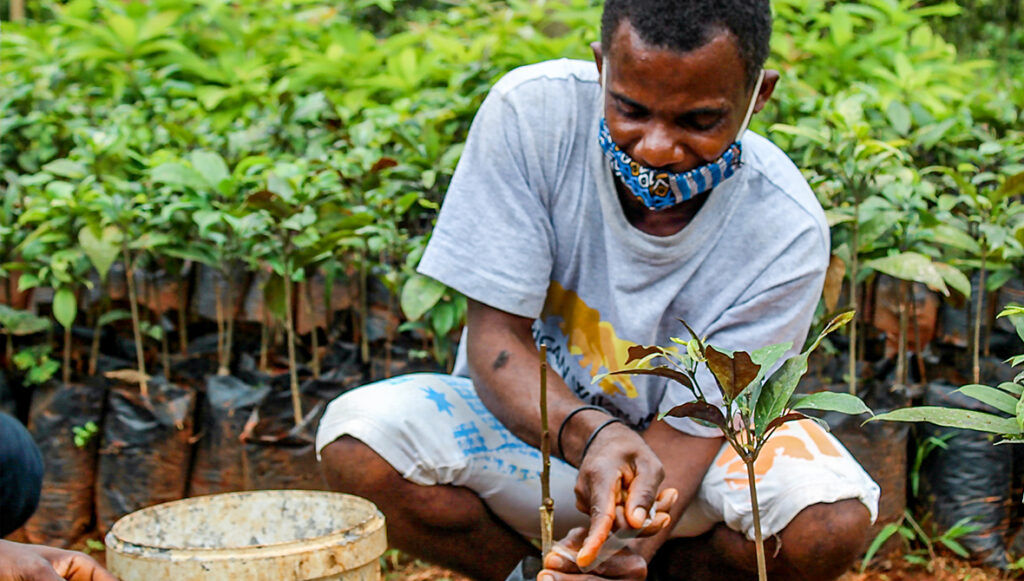Across Africa, young people are responding to the climate crisis with innovation, persistence and purpose. From gardens and classrooms to start-ups and community hubs, they are designing solutions that meet local needs while pushing for a stronger voice in shaping climate policy.
A fertiliser born from ingenuity
In Botswana’s capital, Gaborone, 24-year-old Freddie Rakwadi is turning waste into opportunity. Working from his grandmother’s garden, he has developed Fermavita, a liquid fertiliser made from fermented organic compost. His start-up, BioCrude Innovations, has successfully tested the product on tomato plants under harsh weather conditions.
The fertiliser doubles as a soil enhancer and offers a cheaper alternative to imported products that many smallholder farmers can no longer afford. “A small field can be fed with just 250 millilitres diluted in 75 litres of water,” Rakwadi says. “It’s accessible, and it works – that’s what matters most to the communities we serve.”
By using locally sourced materials, Rakwadi’s work addresses food insecurity, soil degradation and the wider impacts of climate change — issues that are deeply connected across rural Africa.
Youth collaboration at the heart of innovation
Rakwadi’s journey mirrors a wider shift. Across the continent, young Africans are driving climate action from the ground up, often using what is immediately available to them. At the Youth Entrepreneurship for the Future of Food and Agriculture (YEFFA) forum held in Gaborone in August, he joined peers calling for stronger collaboration between youth, governments and civil society.
“Supporting innovation and entrepreneurship is how we build stronger economies and address systemic issues like policy, finance and market access,” he told the gathering.
YEFFA is part of a five-year, $350-million programme run by AGRA, the Alliance for a Green Revolution in Africa. The initiative aims to create 1.5 million jobs for young people in agri-food systems across the continent by nurturing innovation and building partnerships between public and private sectors.
Youth voices ahead of COP30
According to Jeremiah Rogito, AGRA’s soil health and climate expert, amplifying young voices ahead of major climate negotiations such as COP30 in Brazil is essential.
“We are just five years away from the SDG deadline,” Rogito says. “Youth need to speak with one voice going into COP30 because this is our moment to be heard.”
The forum was hosted by Sustain267, a civil-society organisation led by climate justice advocate Pato Kelesitse, which also organises Botswana’s Local Conference of Youth on Climate Change (LCOY). This year’s discussions focused on developing a unified youth position on what a just transition should look like — a document that will be presented at COP30 in November.
Promise and barriers
The initiatives reflect how Africa’s youth are finding creative pathways to climate resilience, often with minimal resources. But they also highlight persistent obstacles: limited funding, weak policy backing and low visibility.
Whether local experiments like Rakwadi’s can grow into continent-wide solutions may depend on how far governments and institutions are willing to go beyond symbolic recognition and commit to sustained investment in young innovators.










